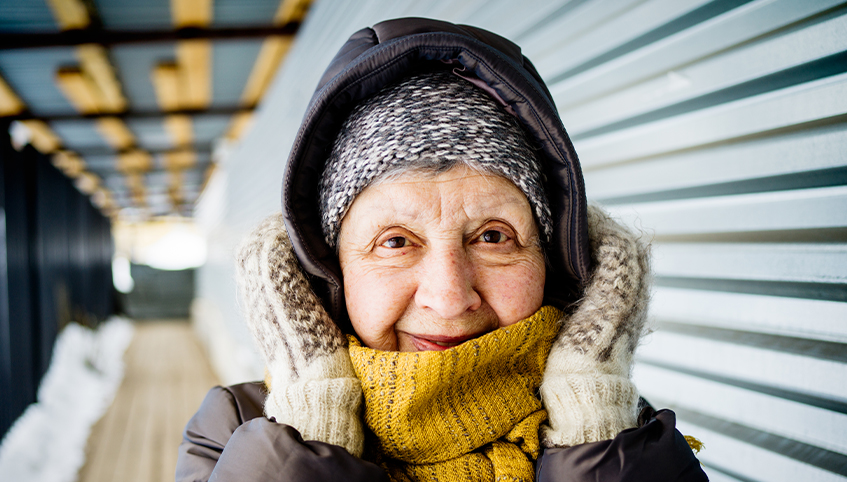January 20, 2023
Winter can pack a wicked weather punch, which December showed with subzero temperatures across the country. This can lead to potentially dangerous health risks you don’t want or need. We offer some safety tips here to help you prepare for severe winter weather and avoid the hazardous risks.
Allow extra time for delays when preparing for outings
Whether you are visiting family, grabbing groceries or going to an appointment with your doctor or dentist, prepare for the weather before you leave your home. Allow extra time for possible traffic delays, parking and walking safely to your destination. Layer your clothing. This helps protect you from the elements yet allows you to shed pieces once you’re indoors in warmer temperatures. It’s also wise to call ahead or check your destination’s website to ensure it is open for business.
Stock up on essentials in advance
Head to the grocery store before bad weather hits and get enough food and supplies to keep you safe and comfy. If you can’t get out, try using one of the many options for ordering groceries online, like Grubhub or Instacart. Many grocery stores now deliver to customers directly through their online channels. Stock up on any medications or other healthcare supplies you need. Some pharmacies will prepare your prescriptions in advance for easy pickup. The University of Kansas Pharmacy also provides free home delivery.

Prevent frostbite
When temperatures reach the single digits like they did in December, with wind chills below zero, even a 10- to 15-minute exposure can cause serious injuries, most often to the hands, feet and nose. Dangerously cold temperatures can quickly affect the circulation and tissue of the limbs. Dhaval Bhavsar, MD, plastic surgeon and co-director of our Burnett Burn Center, says to prevent frostbite you can limit your exposure outside and layer clothing to protect your skin. Bundle up with multiple layers of gloves, pants, socks, as well as protective boots.
Dr. Bhavsar says a warning sign of frostbite is when you start to feel pain or a burning sensation in your extremities. If you’ve already lost some sensation in your fingers, toes or nose, you may not realize soon enough that injury is occurring. Tissue that appears pink or red on the surface may fully recover, but tissue that is blue or purple will likely die and may lead to vascular surgery or amputation. If you’ve been exposed to such extreme cold, Dr. Bhavsar says gradual rewarming of the affected tissue is critical. If your sensitivity to heat is low, you may not feel the additional injury that results from exposure to hot water or another heated item.
Protect your lungs from the cold
Extreme cold can harm your lungs. Anyone with respiratory problems like asthma or COPD should avoid extreme cold if possible. If that’s not possible, pulmonologist Matthew Sharpe, MD, says to cover your mouth and nose with a scarf, which allows air to warm a little before you breathe it in. Breathing through your nose can also warm the air before it gets to your airways.
For people with respiratory issues, frigid temperatures can lead to airway tightening, chest tightening, coughing and wheezing. Dr. Sharpe says older people are more often at risk because lung function reduces with age. Even if your lungs are healthy, you may still experience a brief burning sensation in your chest that eventually recovers.
Be heart smart
Results from a study published in the Journal of the American Medical Association tell us that temperatures below 10 degrees Fahrenheit can raise the risk of heart attack. The study confirms what cardiologist Brian Weiford, MD, and his team have seen in their patients for many years. Dr. Weiford says cold weather can put stress on your body by narrowing blood vessels and raising blood pressure and stress on the heart. Cold air in the lungs and on the skin may lead to stress and inflammation, which can contribute to a heart attack.
If your heart health is already at risk, you should limit your cold weather exposure. And if you are not used to regular strenuous physical activity, do not under any circumstances shovel large amounts of snow.

Working out in cold weather
Cold weather doesn't have to put a freeze on your outdoor exercise program. If you're careful, you can still work out when the weather turns chilly. These tips will help you stay in shape safely this season.
